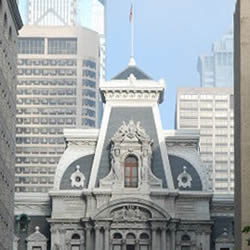The Sugarhouse Casino in Philadelphia will pay out $650,000 for illegally dumping construction materials into the Delaware River in 2009 and 2010, Philly.com is reporting.
The fine for the illegal disposal is $25,000; the casino is also making a donation of $625,000 to the Brandywine Conservancy, a group that, according to its website, “is committed to the belief that preservation and wise use of natural and cultural resources provides health, education, beauty, and increased quality of life for individuals and communities.”
Despite receiving three cease and desist letters from the Army Corps of Engineers, workers at the Sugarhouse Casino continued to improperly dump construction debris into the river, doing so on an estimated dozen occasions in the 2009 to 2010 period, officials alleged.
In a statement, US Attorney Zane David Memeger said, “This case reinforces our commitment to protecting the environment by ensuring that corporations either follow environmental laws or face serious sanctions.”
For its part, the casino, which opened its doors to the public on 2010, did not accept direct responsibility for the matter, instead insinuating that the construction firms they hired were to blame.
While not naming any names of the contractors and subcontractors who were seen disposing of the debris in the Delaware, Sugarhouse officials released a statement that read, in part, “Rather than litigate, we’ve agreed to enter into this settlement to resolve the matter.”
“We support the mission of the U.S. Army Corps of Engineers to protect the environment and our waterways,” the statement went on.
The Sugarhouse, built in the former Jack Frost Sugar Refinery, has proven to be a hot-button issue ever since its license was first approved back in 2006. Residents of Philadelphia’s Fishtown neighborhood, where the casino is located, have been divided over quality of life issues relating to the casino for years.
Groups have formed against the casino, including the Philadelphia Neighborhood Alliance, Casino Free Philadelphia, and Neighbors Allied for the Best Riverfront. The Sugarhouse is not without its supporters, however; the Fishtown Action (FACT), a citizens group numbering some 600 members, has long supported the casino and its presence in the neighborhood.
Some might argue that the penalty inflicted upon the Sugarhouse is too low, especially as Pennsylvania is looking toward casino expansion. There is another Philadelphia casino license currently up for grabs; Steve Wynn is vying for the spot, and has promised to build a world-class resort employing his now-signature bronze glass tower design.
Last year Pennsylvania surpassed Atlantic City to become the nation’s second-largest gambling market, a title that the Keystone State is looking to retain as it vies to lure more tourists, and more out of state gambling dollars, by erecting more, and more luxurious, casino properties. An incident such as this, in which poor corporate stewardship is displayed, could serve to blemish the state’s gambling industry just as it is on the rise.

